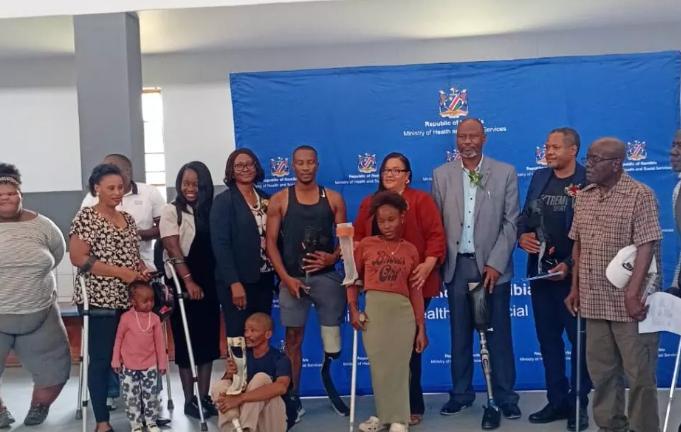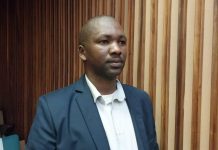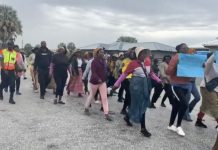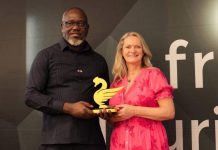Africa-Press – Namibia. The Ministry of Health and Social Services (MoHSS) celebrated International Prosthetics and Orthotics Day yesterday at the UN Plaza in Windhoek alongside the rest of the world under the theme “Products Advancing Access, Innovation, and Quality.”
The purpose of the day was to honour and increase awareness of the value of prosthetics and orthotics services, which are essential in helping people with physical disabilities regain their freedom, mobility, and dignity.
Acting deputy executive director Johannes Gaeseb gave the keynote speech on behalf of executive director Penda Ithindi, emphasising the importance of orthotics and prosthetics in rehabilitation and assistive technology services, which are intended to enhance quality of life and guarantee that no one is left behind.
“Orthotics deals with assistive devices that support or correct existing body parts after injury or illness, whereas prosthetics is a medical science that focuses on replacing lost or missing body parts,” said Gaeseb. “These services are transformative forces that greatly improve people’s functionality, health, and well-being,” he added.
Gaeseb emphasised that assistive technology and rehabilitation are essential components of Universal Health Coverage (UHC), saying that all individuals must have access to these services.
To cut down on lengthy waiting lists and the necessity for long-distance travel, he reiterated the government’s commitment to decentralising and growing rehabilitation programs throughout the nation. Those in need can receive these services for free from the Government of the Republic of Namibia.
These services are currently offered at Windhoek Central Hospital, two intermediate hospitals in Oshakati and Rundu, and four regional hospitals that provide rudimentary services because of a lack of staff and equipment. Nonetheless, the ministry is dedicated to increasing access across the country.
Despite these initiatives, Gaeseb pointed out that access to rehabilitation treatments is still restricted, particularly at the basic healthcare level, where there are only 3.8 rehabilitation specialists per 10 000 people, compared to the 9.2 recommended by the World Health Organisation. Additionally, he noted that Namibia still has a high rate of auto accidents, which raises the need for these essential services.
Gaeseb said the ministry is working towards the development of key regulatory and guiding documents, including the National Rehabilitation Strategy, guidelines for wheelchairs and accessories, and the revision of the Prosthetics and Orthotics Policy. These actions will help Namibia improve service delivery and align with international standards.
He thanked the World Health Organisation (WHO) and development partners for their ongoing financial and technical assistance in bolstering assistive technology services. He asks the community members to refer those with impairments who may still need support to them.
Namibia was celebrating the day for the first time and Dr Marita Mouton, senior medical officer in the Khomas region, described the occasion as historic.
For More News And Analysis About Namibia Follow Africa-Press






